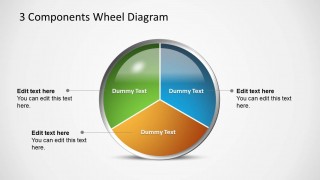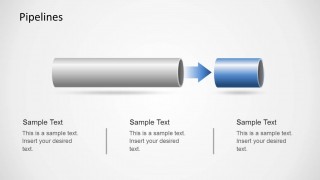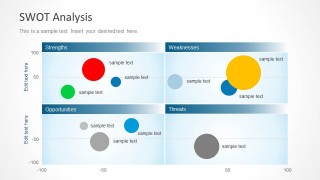Learn more how to embed presentation in WordPress
Copy and paste the code below into your blog post or website
Copy URL
Embed into WordPress (learn more)
Comments
comments powered by DisqusPresentation Slides & Transcript
Presentation Slides & Transcript
Is Uber legal?A presentation by Drew and Noah
Uber’s Motion to Dismiss:“Uber is a software company that enables members of the public to connect with licensed livery vehicles and taxicabs by pressing a button on their smartphones.”What is Uber?Cab Company’s Amended Complaint:“Uber is an operating transportation company no different than any other regulated Chicago taxi or limousine company.”
A user’s experience consists of the smartphone application.Here you can:Set pickup pointSee availability of carsView waiting time
Once the pickup location is set, you see this screen.Here you can:View info about driverSee wait timeView car’s progress
Fare is calculated by:Base fareDistance traveledTimeThis will be significant later.
Uber grafts itself on top of existing transportation infrastructure:Uber does not directly employ any drivers.Uber does not own any vehicles.Uber works with Infinity Limousine (and other carriers) in a split fee arrangement.
Uber grafts itself on top of existing transportation infrastructure:An Uber fare is split among three parties:One portion to UberOne portion to driverOne portion to transportation companyUber’s terms of service state: “Uber is a request tool, not a transportation carrier.”Drivers are driving for “themselves” when using the application.
What is at stake?*Source: IBISWorld Industry Market ResearchTaxi and Limousine Services 2013
Why it’s hard to break into market:Taxis are usually regulated in local markets by “medallions”They are physical identifiers that need to be with Taxi at all times.Taxis are only vehicles that can pick up people on the fly.
Why it’s hard to break into market:
Plaintiff’s Case against UberBy Noah Johnson and Drew Havens
The Issue before a Chicago Federal Court:Whether Uber, a company that markets itself as a transportation company, needs to comply with the laws and regulations in the city of Chicago or cease to operate in its current model?
Regulations for Livery Vehicles?It is unlawful for any person to drive a public passenger vehicle equipped with a meter which registers a charge of any kind. Chicago Muni. Code 9-114-060.“Livery Vehicle” means a public passenger vehicle for hire only at a charge fixed by agreement in advance. Chicago Municipal Code 9-114-280.
Regulations for Livery Vehicles?In Chicago, under local ordinance, it is unlawful for any person other than a livery licensee or his agent to represent to the public that he renders livery service. Chi. Muni. Code 9- 114-020 (c). Additionally, in Chicago, no dispatch service may serve both taxicab and livery license holders. City of Chicago Rules and Regulations for Radio Dispatch Services Rule No. 3.
Regulations for Taxis:Taxis are not permitted the luxury of doubling, tripling, or even quintupling their rates as Uber does, just because it is raining or a holiday. Chicago Municipal Code 9-112-600.Rule TX05-07(c)(2) specifically prohibits a licensee from imposing on a consumer “an extra fee or surcharge for using non-cash electronic forms of payment.” “It is unlawful for any person to demand or collect any fare which is more than the rates established by ordinance . . . .” Chicago Municipal Code 9-112-600
We’re different!Uber’s response to Yellow Group’s lawsuit
Brief word on the Lanham ActA party is liable under 43(a)(1)(A) and (B) of Lanham Act, for:(A) false representations concerning the origin, association or endorsement of good or services through the wrongful use of another’s distinctive mark, name, trade dress or other device(B) false representations in advertising concerning the qualities of good or services
A party bringing suit under Lanham Act must assert a discernible competitive injury.Without an injury, plaintiff lacks standing.Uber invokes Marvellous Day Elec. (S.Z.) Co., Ltd. v. Ace Hardware CorporationBrief word on the Lanham Act
Marvellous Day v. Ace Hardware Corp.Plaintiff Marvellous Day was a company that manufactured patented holiday lights.Marvellous Day brought suit against Ace Hardware for violations of Lanham Act for selling holiday lights that were similar to their patented lights.Marvellous Day asserted that by advertising lights that functioned similar to their patented ones, and selling them to consumers, Ace violated Lanham Act.
Marvellous Day v. Ace Hardware Corp.Court ruled Marvellous Day did not have standing because:Marvellous Day was not a commercial competitor with Ace and could not claim a discernible competitive injury.The two companies operate on different levels of the distribution chain.
Marvellous Day v. Ace Hardware Corp.Marvellous Day manufactures LED lights.Ace sells the lights to consumers through its retail stores.“Courts require the plaintiff to show that it competes at the same level of business as the defendant.”
Uber is on different level of distribution chain“Plaintiffs include taxi licensees, taxi affiliations, and a livery service.”“Uber is a software company and a licensed radio dispatch service and, as such, puts members of the public seeking transportation in touch with licensed taxi and black car drivers.”
Federal Court is not the place for this fight.Uber claims Yellow Group is bootstrapping municipal regulation violations into a Lanham Act suit to get to Federal Court.Analogizes to cases where complaint was dismissed because court refused to “reach out and apply federal law to a quintessentially local dispute.”
Where is the right place to decide issue?“Whether Uber has violated any municipal regulations is an issue squarely for agency consideration and resolution.”Because “agency decisions are frequently of a discretionary nature or frequently require expertise, the agency should be given the first chance to exercise that discretion or to apply that expertise.”Agencies such as Chicago Department of Business Affairs and Consumer Protection should interpret or write new rules.
Uber’s basic argument:We are different from a taxi company, and on a different level of the distribution chain.Thus, you cannot sue under Lanham Act.We are so different, that regulatory bodies do not know how to apply their existing municipal regulations to Uber.Thus, agencies need to rewrite their regulations.





